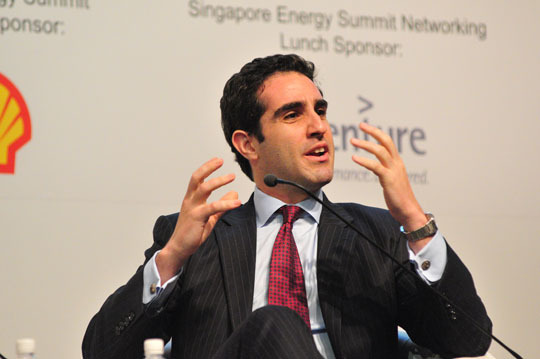 Michael Levi, a
prominent
apologist
for the Keystone XL pipeline, natural-gas
exports,
and other fossil-fuel industry priorities, has joined the White House,
Hill Heat has learned. Yesterday, Levi began work as a Special Assistant
to the President for Energy and Economic Policy on the National Economic
Council staff.
Michael Levi, a
prominent
apologist
for the Keystone XL pipeline, natural-gas
exports,
and other fossil-fuel industry priorities, has joined the White House,
Hill Heat has learned. Yesterday, Levi began work as a Special Assistant
to the President for Energy and Economic Policy on the National Economic
Council staff.
For ten years, Levi was Council on Foreign Relations senior fellow for energy and climate policy. Previously, Levi was a nuclear non-proliferation expert at the Brookings Institution, while pursuing his doctorate at the University of London.
Possessed of undeniable brilliance, Levi has no formal training in climate science, economics, or energy policy; his undergraduate and master’s degrees are in physics, and his doctorate is in War Studies. In 2008 he began publishing on climate policy, overseeing a major CFR Task Force report on U.S. climate policy chaired by Tom Vilsack and George Pataki. He quickly established himself as a prominent (and convenient) climate centrist-cum-contrarian—embracing the urgency of climate action, while criticizing other proponents of strong climate policy and providing convoluted arguments for the continued expansion of fossil-fuel and nuclear projects. (Levi calls his approach a most-of the above policy.) Over the years, his pursuits included taking a skeptical view of green jobs, promoting tar sands exploitation, and defending natural gas as a bridge fuel.
Levi’s position as CFR’s energy and climate expert was endowed by David Rubenstein, the founder of the Carlyle Group, a major investor in the oil and gas industry.
Levi is part of a generation of industry-friendly climate experts whose influence is on the rise with the ascension of Hillary Clinton’s campaign, whose numbers also include Heather Zichal (BA, Rutgers), the Rhodium Group’s Trevor Houser (BA, City College of New York) and Columbia University’s Jason Bordoff (Harvard Law). These people are pundits whose careers as climate experts have been sponsored by fossil-fuel industry investors despite a lack of training in climate science. They are now in position to shape United States climate policy if Clinton succeeds President Obama in November.